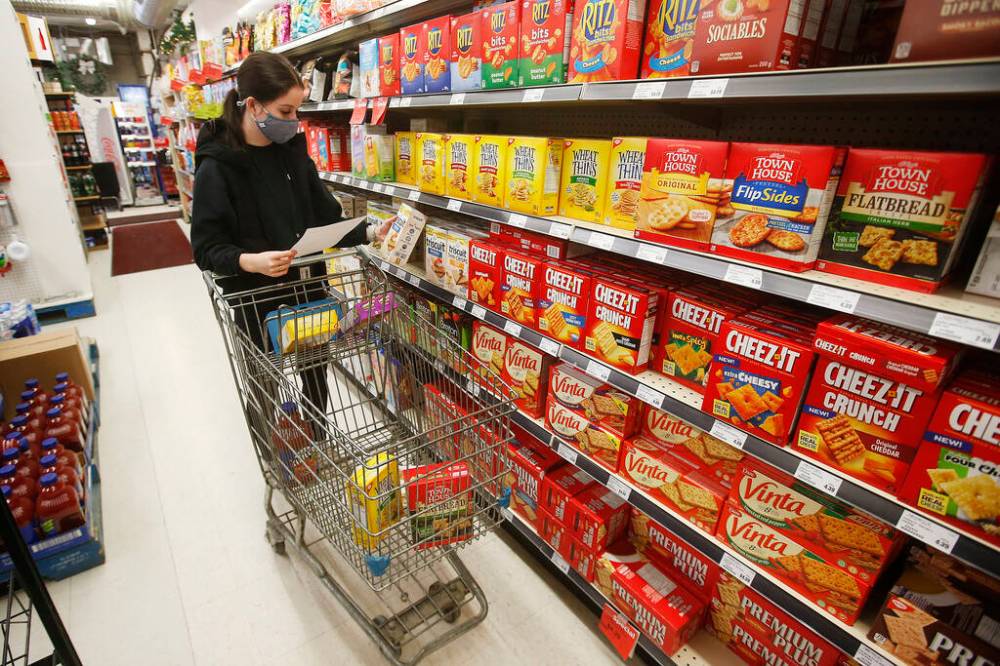Path to reducing income inequality seen
Report warns against raising interest rates, cutting deficits
Advertisement
Read this article for free:
or
Already have an account? Log in here »
To continue reading, please subscribe:
Monthly Digital Subscription
$0 for the first 4 weeks*
- Enjoy unlimited reading on winnipegfreepress.com
- Read the E-Edition, our digital replica newspaper
- Access News Break, our award-winning app
- Play interactive puzzles
*No charge for 4 weeks then price increases to the regular rate of $19.00 plus GST every four weeks. Offer available to new and qualified returning subscribers only. Cancel any time.
Monthly Digital Subscription
$4.75/week*
- Enjoy unlimited reading on winnipegfreepress.com
- Read the E-Edition, our digital replica newspaper
- Access News Break, our award-winning app
- Play interactive puzzles
*Billed as $19 plus GST every four weeks. Cancel any time.
To continue reading, please subscribe:
Add Free Press access to your Brandon Sun subscription for only an additional
$1 for the first 4 weeks*
*Your next subscription payment will increase by $1.00 and you will be charged $16.99 plus GST for four weeks. After four weeks, your payment will increase to $23.99 plus GST every four weeks.
Read unlimited articles for free today:
or
Already have an account? Log in here »
Hey there, time traveller!
This article was published 14/03/2022 (1344 days ago), so information in it may no longer be current.
There may be a silver lining to the black pandemic cloud hanging over a province stunned by soaring prices and unfamiliar inflation.
Manitoba is in a position to reverse 40 years of worsening income inequality — if the Bank of Canada and governments are willing, says a report by University of Manitoba economics and labour studies assistant professor Jesse Hajer.
Raising interest rates and cutting government deficit spending to curtail inflation to pre-pandemic levels won’t be very effective in the short run, and would jeopardize the economic recovery, says the report Understanding Inflation and the Rising Cost of Living in Manitoba.

Year-over-year inflation in January was 5.5 per cent in Manitoba: food prices increased 5.1 per cent, shelter costs went up 7.6 per cent and gas prices rose 34.5 per cent. In addition energy costs skyrocketed 22.6 per cent and the price of goods rose 7.1 per cent.
There are many reasons for the recent increase in inflation but most are related to the pandemic and are likely temporary, says the 48-page report, which was prepared for the Canadian Centre for Policy Alternatives in Manitoba.
Prices are catching up after a year of very low inflation due to the pandemic recession. Public health restrictions and reduced economic activity kept a lid on prices in 2020, as did the Manitoba government’s order to freeze residential rents at the time.
Plummeting global demand meant the price of gasoline in Manitoba fell by nearly 14 per cent in 2020 compared to 2019, and energy prices overall fell by 8.4 per cent.
The overall inflation rate in 2020 was 0.5 per cent — the lowest annual rate of inflation recorded in Manitoba, Statistics Canada data show. That follows a 30-year stretch of relatively low and stable inflation.
Many people lost their jobs in the early part of the pandemic, but the federal government responded with unprecedented income supports and other aid to households, businesses and organizations. Incomes increased in 2020 and inequality decreased, despite record job losses and low-wage earners disproportionately losing paid work.
Disposable household incomes increased by 10.4 per cent in 2020 relative to 2019, the largest margin of increase in at least 20 years, the report said.
The combination of higher income and savings, the risk of working during an evolving pandemic, along with surging demand have given workers greater bargaining power in the labour market, with wages increasing faster than the overall price level. During the first year of the pandemic, average and median wages in Manitoba increased rapidly, with annual increases in 2020 ranging from 4.6 per cent to 8.1 per cent.
Over the two years of the pandemic, wage growth on average has made up for the rise in prices with real wage gains for workers that’s been driven by strong economic growth and increasing competition for workers — and not just those who are highly skilled.
New employees and low-income workers in lower-skilled work in Canada have made the biggest wage gains, and that’s helping to reduce income inequality, the report says.

Manitobans on fixed incomes and lower-income households have been hit the hardest by rising prices and inflation. The report recommends targeted options for government policy, such as indexing provincial income program benefits that aren’t geared to rise with inflation.
Broadening the public provision of essential goods and services — in sectors such as telecommunications, internet and mobile phone service providers where a lack of competition can lead to price gouging — is another way to sustain the recovery and reduce income disparity, the report says.
Ahead of a provincial budget expected next month, it’s calling on labour unions and consumer and community groups that work with lower-income households to advocate for progressive policies that address inflation.
“These changes will not only help address short-term concerns regarding the cost of living, but will lead to sustained affordability and improved equity while improving economic efficiency over the long run,” the report says.
Premier Heather Stefanson has said Manitobans can expect the provincial budget to have a deficit and include more help for people and businesses affected by the pandemic. Her Progressive Conservative government is proceeding cautiously in light of the pandemic and potential economic fallout from the war in Ukraine, she said. The goal is to balance Manitoba’s books by 2028.
carol.sanders@freepress.mb.ca

Carol Sanders
Legislature reporter
Carol Sanders is a reporter at the Free Press legislature bureau. The former general assignment reporter and copy editor joined the paper in 1997. Read more about Carol.
Every piece of reporting Carol produces is reviewed by an editing team before it is posted online or published in print — part of the Free Press‘s tradition, since 1872, of producing reliable independent journalism. Read more about Free Press’s history and mandate, and learn how our newsroom operates.
Our newsroom depends on a growing audience of readers to power our journalism. If you are not a paid reader, please consider becoming a subscriber.
Our newsroom depends on its audience of readers to power our journalism. Thank you for your support.


